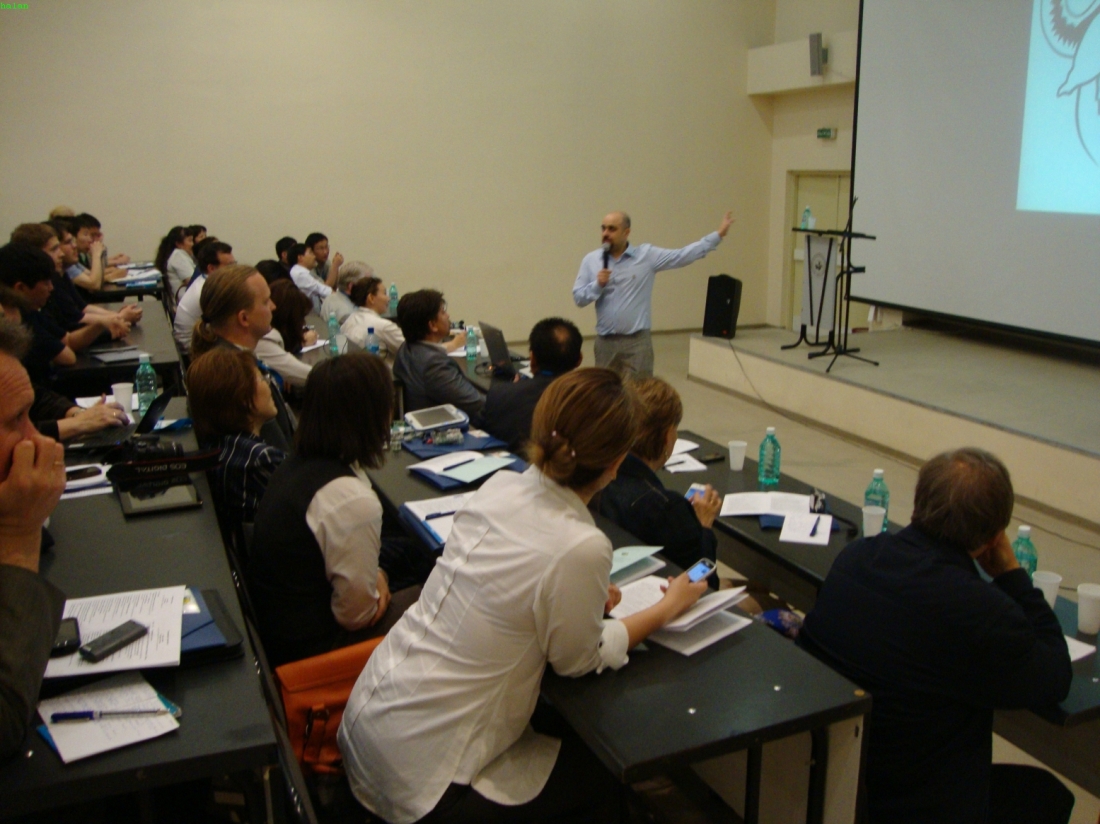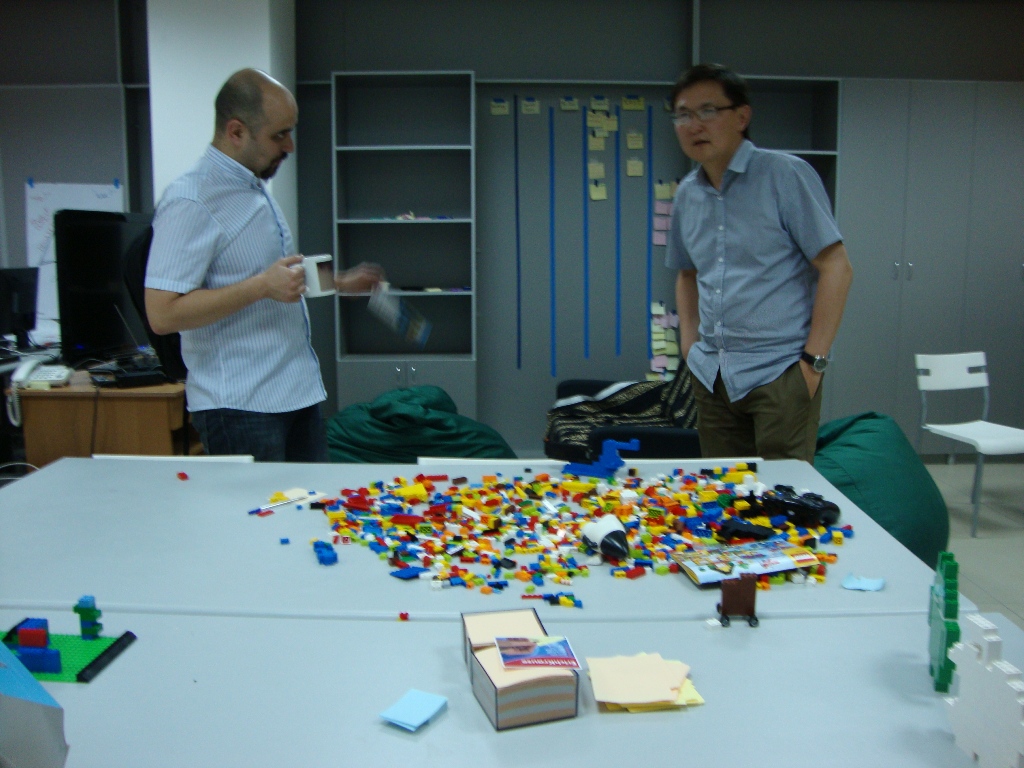When I was about five years old, I saw a map of the world on the wall of my Moscow home. I noticed that the USSR is very, very big. And that it has a lot of rivers, like Ob, Yenisey, and Lena. “Lena”, I thought, “How nice. Like a name of a girl.”
On the Lena river I saw a city called Yakutsk. The name sounded a bit funny to me, but I became curious about it somehow.
And last month I went there.
Yakutsk is the capital of the Sakha Republic, also known as Yakutia – the largest administrative region in the world that is not a country. The largest native ethnic group of Sakha, after which the republic is named, speak a Turkic language of the same name, although it is also frequently called “Yakut”. Even though I spent almost all of my Soviet life in Moscow, I was always very curious about all the other regions and languages of the USSR, so when I discovered Wikipedia, I devoted a lot of time to reading about them and to visiting Wikipedias in these languages, even though I cannot really read them.
A request to start a Wikipeda in Sakha was filed in 2006, and I was quick to support it. After a few months of preparations it was opened. It is now one of the relatively more active Wikipedias in languages of Russia – it has over 8,000 articles, and for a minority language, most speakers of which are bilingual in another major language, this is a good number.
I kept constant and positive contact with Nikolai Pavlov – the founder and the unofficial leader of the Sakha Wikipedia – since the very start of this Wikipedia. It was great to give these people technical and organizational advice: how to write articles effectively, how to choose topics, how to organize meet-ups of Wikipedians. For a long time I dreamt of meeting them in person, but because Yakutsk is so far away from practically any other imaginable place, I didn’t think that it will ever happen. But in April 2012 I met Nikolai at the Turkic Wikimedia Conference in Almaty, Kazakhstan.
A few days after that conference Nikolai suggested that I submit a talk for an IT conference in the North-Eastern Federal University in Yakutsk. At first I thought that I’m not really related to it, but after reading the description, I decided to give it a try and wrote a talk proposal about my favorite topics: MediaWiki and Software Localization. Somewhat surprisingly, the talks were accepted and I received an invitation to present at that conference.

I flew from Tel-Aviv to Moscow, and then six more hours from Moscow to Yakutsk. Yakutsk is apparently a modern, bustling and developed city, but with interesting twists. Most notably, because it is in the permafrost area, all the houses are built on piles and all the pipelines are above ground. But actually this is just a small detail, because the general feeling is that it was a whole different country from the European part of Russia, to which I was used, and in a very good way.

I was most pleasantly surprised by the liveliness of the Sakha language: practically all people there know Russian, but the Sakha speech is frequently heard on the streets, Sakha writing is frequently seen on advertising and store signs, and Sakha songs are played from many passing cars.

The conference was very varied – with presenters from South Korea, China, Bulgaria, Switzerland and major Russian cities – Moscow, St. Petersburg and others. The topics were very varied, too, but the central topic was using computer technologies for education and human development, so I felt that my talks about Wikipedia and software localization were fitting.

Except participating in the conference itself, I also attended many meetings that Nikolai organized for me. It was fascinating to meet all these people.

I spoke to the editor and the manager of the republic’s largest book publishing company – they told me that the local literature has great artistic value, but since less than half a million people speak this language, it’s hard to earn a lot of profit from it and to develop it. They also complained that some authors – as well as some deceased authors’ families – are too harsh about copyrights. I suggested them to try to talk with authors and release some works under the Creative Commons license and see whether it gets them more exposure, and they promised to read Lawrence Lessig’s “Free Culture” book.

I also met with linguists from the university, who work on researching and documenting the Sakha language and other languages of the region, such as Evenki and Yukagir. I suggested them to use Wikimedia resources for storage and documentation of the works they gather, and they liked the idea; I am definitely going to follow up with them on that.

Another great meeting I had was with local tech people – a community of proud local IT geeks, who had lots of ideas for promoting Wikipedias in regional languages, and also the management and the employees of the local Internet portal ykt.ru. Their offices look just like a building of a hi-tech company in the Silicon Valley or in Israel – with cozy rooms and lounges, and a Kanban board. The people made an excellent impression on me, too: we had a very professional and engaging conversation about developing web applications and agile management methodologies.

I also spoke to several journalists and to the local TV and radio stations, inviting people to read Wikipedia in their own language and to contribute to it. I felt a bit like a celebrity, and well, I hope that it made somebody realize how effective can the Internet be in promoting local cultures and how proud should people be about their own languages.
One last comment is about the Sakha literature, which I mentioned earlier. I return from almost all my trips abroad with a lot of books about the local languages and cultures. And I actually read them. It happened in this trip, too, except this time most of the books were given to me as gifts by all those very nice people that I met. Sakha prose and Olonkho poetry in translation to Russian are simply wonderful. In all honesty. This is beautiful world-class literature and it deserves more exposure. If this little blog post made you curious about it, then it’s the most important thing that it could achieve.
(All photos were taken by Nikolai Pavlov, except the one in which he appears.)
Big deal. It’s only the largest because the Candians split up the NT…
You, sir, are awesome :) I don’t know how you do it, but this blog consistently has the most interesting posts of the Planet Wikimedia aggregator. Thanks for sharing about your trip!
Agree with Waldir.
Great to see you promoting the regional language Wikipedias (and Wikipedia and localization in general) in the far east of Russia!
I agree with Waldir, this was a fascinating post.
Re: יובל פינטר
9 of Canada’s political subdivisions (out of only 13 in total) are listed at http://en.wikipedia.org/wiki/List_of_the_largest_country_subdivisions_by_area So I’d say we’re still doing pretty well.
Great job Amir :)
It is fantastic to see how Wikipedia and localization can serve the languages. I keep your blogpost as an example for my own work to help the growth of wikipedias in regional languages in the french territories.
Амир, если помнишь, ты рассказывал о каком-то человеке или организации, которая финансирует перевод на разные языки и издание “Алисы в стране чудес”. Можно чуть подробнее? Махтал!